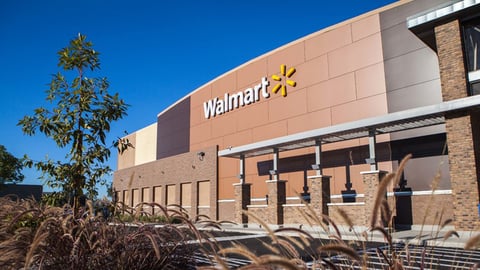Walmart on Course to Become Regenerative Company
Walmart is reaffirming its commitment to battle climate change with a goal to achieve zero emissions across the company’s worldwide operations by 2040, without the use of carbon offsets. The retailer and the Walmart Foundation are also pledging to help protect, manage or restore a minimum of 50 million acres of land and 1 million square miles of ocean by 2030 to conserve nature under threat.
“We want to play an important role in transforming the world’s supply chains to be regenerative,” explained Doug McMillon, president and CEO at Walmart Inc. “We face a growing crisis of climate change and nature loss, and we all need to take action with urgency. For 15 years, we have been partnering to do the work and continually raising our sustainability ambitions across climate action, nature, waste and people. The commitments we’re making today not only aim to decarbonize Walmart’s global operations, they also put us on the path to becoming a regenerative company – one that works to restore, renew and replenish in addition to preserving our planet, and encourages others to do the same.”
Walmart intends to achieve these goals by:
- Harvesting sufficient wind, solar and other renewable energy sources to run its facilities with 100% renewable energy by 2035.
- Electrifying and zeroing out emissions from all of its vehicles, among them long-haul trucks, by 2040.
- Switching to low-impact refrigerants for cooling and electrified equipment for heating in its stores, clubs, and data and distribution centers by 2040.
Additionally, a regenerative approach to nature can not only help reverse such negative impacts as the degradation and loss of critical landscapes and the eradication of many species of plants and animals, and sustain key resources for the future, but it can also provide about a third of the solution to climate change.
“We must all take urgent, sustained action to reverse nature loss and emissions before we reach a tipping point from which we will not recover,” urged Kathleen McLaughlin, Walmart’s EVP and chief sustainability officer, and president of the Walmart Foundation. “People have pushed past the earth’s natural limits. Healthy societies, resilient economies and thriving businesses rely on nature. Our vision at Walmart is to help transform food and product supply chains to be regenerative, working in harmony with nature – to protect, restore and sustainably use our natural resources.”
The company plans to do this by:
- Continuing its support of efforts to preserve at least 1 acre of natural habitat for every acre of land developed by the company in the United States.
- Encouraging the adoption of regenerative agriculture practices, sustainable fisheries management, and forest protection and restoration, including an expansion of its forests policy.
- Investing in and working with suppliers to source from placed-based efforts that help preserve natural ecosystems and improve livelihoods.
McMillon will discuss these initiatives at the opening ceremony of Climate Week NYC, which kicks off Sept. 21. This comes a day before the retailer’s annual Sustainability Milestone Summit, to take place during Climate Week’s Hub Live, where the company will gather associates, suppliers, NGOs and other stakeholders to discuss sustainability in the retail and consumer goods sector.
To date, Walmart powers about 29% of its operations with renewable energy and diverts around 80% of its waste from landfills and incineration worldwide. Since most of its environmental impact comes from its supply chain, the company is also collaborating with suppliers through its Project Gigaton initiative to avoid a gigaton of greenhouse gas emissions by 2030. More than 2,300 suppliers have agreed to participate, and since the effort began in 2017, suppliers have reported a collective 230 million metric tons of avoided emissions.
Bentonville, Arkansas-based Walmart operates more than 11,300 stores under 58 banners in 27 countries, and e-commerce websites, employing 2.2 million-plus associates worldwide. Walmart U.S. is No. 1 on The PG 100, Progressive Grocer's list of the top food retailers in North America, while Walmart-owned Sam's Club ranks No. 9 on the list.






